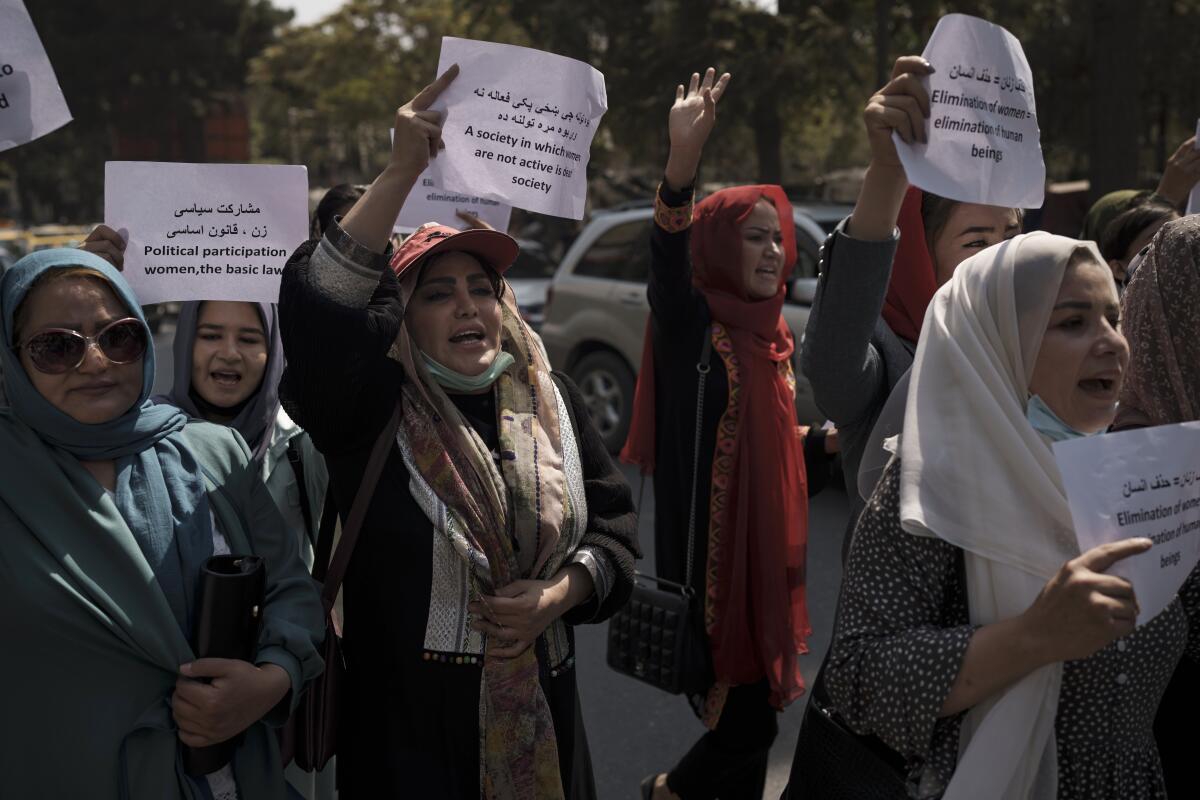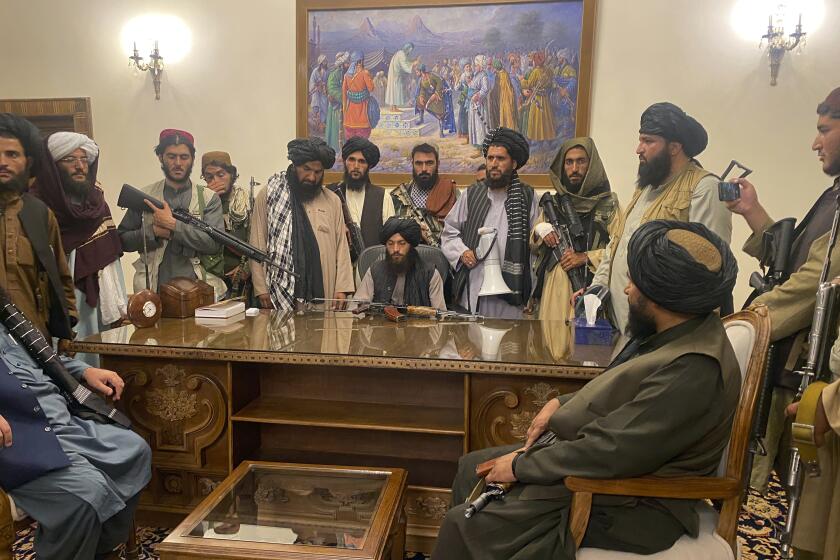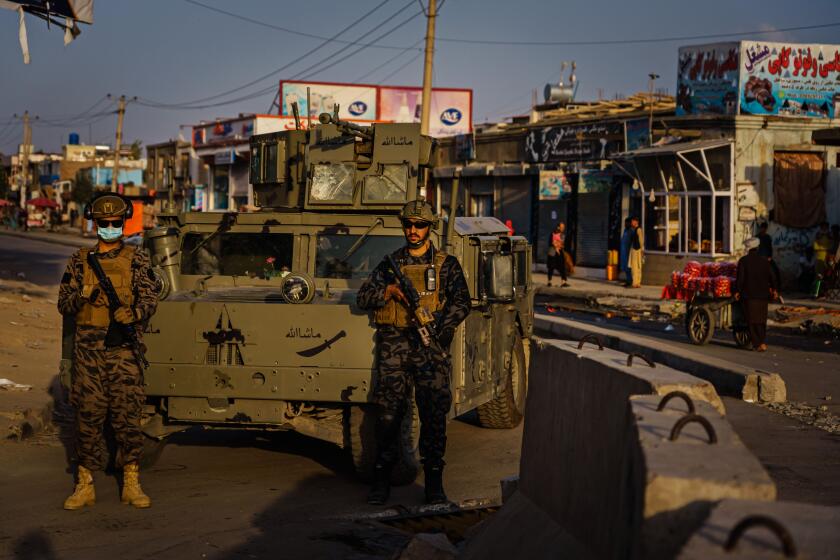Taliban tells female workers in Afghan capital to stay home

- Share via
KABUL, Afghanistan — Female employees in the Kabul city government have been told to stay home, with work allowed only for those who cannot be replaced by men, the interim mayor of Afghanistan’s capital said Sunday, detailing the latest restrictions on women by the new Taliban rulers.
The decision to prevent most female city workers from returning to their jobs is another sign that the Taliban, which overran Kabul last month, is enforcing its harsh interpretation of Islam despite initial promises by some that it would be tolerant and inclusive. In its previous rule in the 1990s, the Taliban had barred girls and women from schools, jobs and public life.
In recent days, the new Taliban government issued several decrees rolling back the rights of girls and women. It told female middle- and high school students that they could not return to school for the time being, but boys in those grades resumed studies this weekend. Female university students were informed that studies would take place in gender-segregated settings from now on, and that they must abide by a strict Islamic dress code. Under the U.S.-backed government deposed by the Taliban, university studies had been coed for the most part.
On Friday, the Taliban shut down the Women’s Affairs Ministry, replacing it with a ministry for the “propagation of virtue and the prevention of vice” and tasked with enforcing Islamic law.
On Sunday, just over a dozen women staged a protest outside the ministry, holding up signs calling for the participation of women in public life. “A society in which women are not active is (sic) dead society,” one sign read.
The friction between pragmatists and ideologues in the Taliban leadership has intensified since the formation of a hard-line Cabinet last week.
“Why are they [the Taliban] taking our rights?” said one of the protesters, 30-year-old Basira Tawana. “We are here for our rights and the rights of our daughters.”
The protest lasted for about 10 minutes. After a short verbal confrontation with a man, the women got into cars and left, as Taliban in two cars observed from nearby. Over recent months, Taliban fighters had broken up several women’s protests by force.
Elsewhere in the city, interim Kabul Mayor Hamdullah Namony gave his first news conference since being appointed by the Taliban.
He said that before the Taliban takeover last month, just under one-third of close to 3,000 city employees were women, and that they had worked in all departments.
Namony said the female employees have been ordered to stay home, pending a further decision. He said exceptions were made for women who could not be replaced by men, including some in the design and engineering departments and the attendants of public toilets for women. Namony did not say how many female employees were forced to stay home.
“There are some areas that men can’t do it; we have to ask our female staff to fulfill their duties,” he said. “There is no alternative for it.”
Namony also said the new government has begun removing security barriers in Kabul, a city that has endured frequent bombing and shooting attacks over the years. Such barriers — erected near ministries, embassies and private homes of politicians and warlords — had been commonplace in Kabul for years.
The mayor said private citizens would be charged for the work of taking down the barriers. Although he said most barriers had been removed, reporters touring the city noted that barriers outside most government installations and embassies had been left in place.
The countries lying closest to Afghanistan have competing agendas in the new Taliban era.
Taliban leaders have tried to present themselves as guarantors of security, in hopes that this will win them support from a public still widely suspicious of their intentions. Under the previous government, a rise in crime had been a major concern for ordinary Afghans.
Perhaps the toughest challenge faced by the new rulers is the accelerated economic downturn. Even before the Taliban takeover, Afghanistan was plagued by major problems, including large-scale poverty, drought and heavy reliance on foreign aid for the state budget.
In a sign of growing desperation, street markets have sprung up in Kabul where residents are selling their belongings. Some of the sellers are Afghans hoping to leave the country, and others are forced to offer their meager belongings in hopes of getting money for the next meal.
“Our people need help. They need jobs, they need immediate help; they are not selling their household belongings for choice here,” said Kabul resident Zahid Ismail Khan, who was watching the activity in one of the impromptu markets.
“For a short term people might try to find a way to live, but they would have no other choice to turn to begging in a longer term,” he said.
More to Read
Sign up for Essential California
The most important California stories and recommendations in your inbox every morning.
You may occasionally receive promotional content from the Los Angeles Times.















